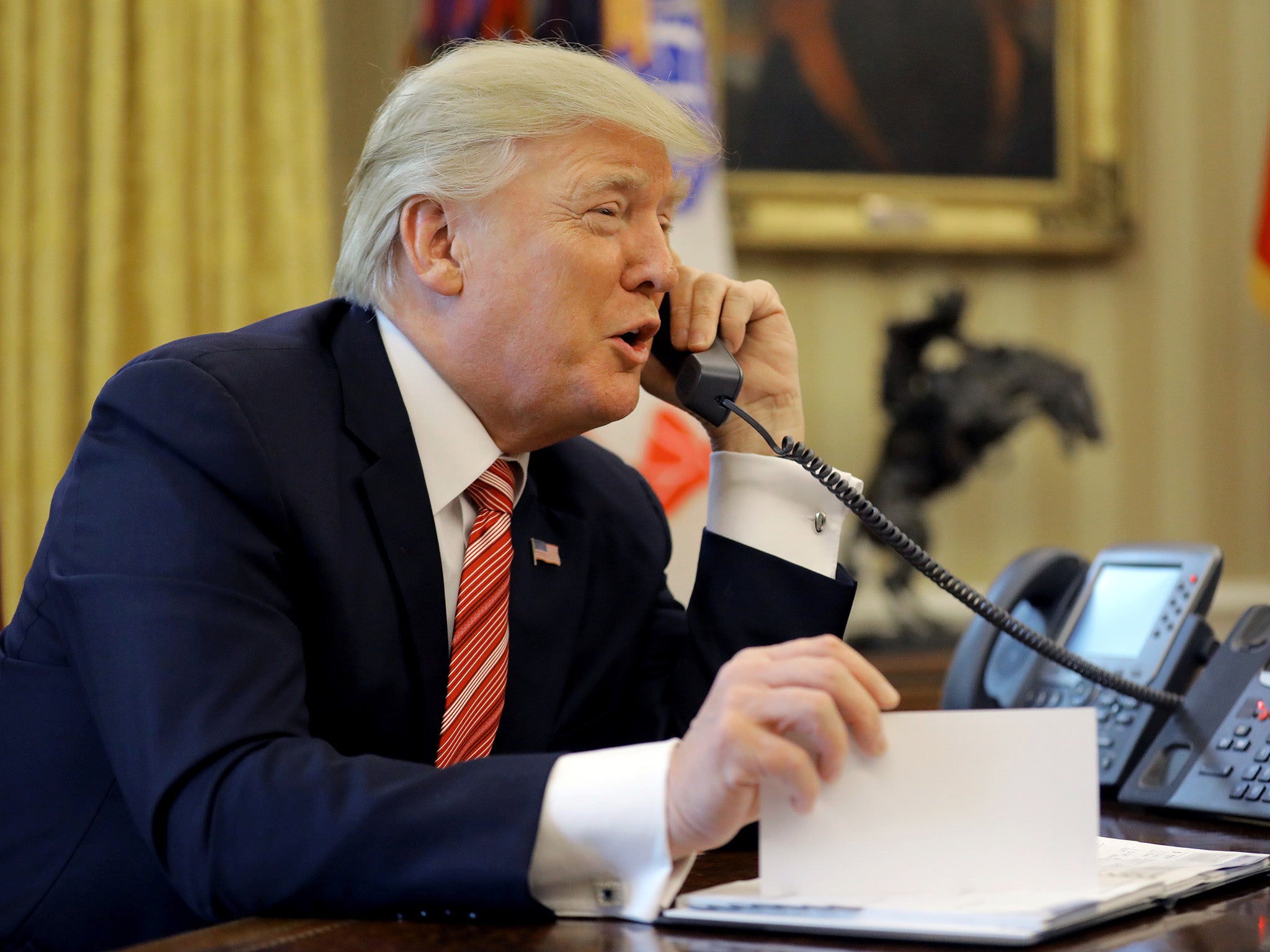The Trump fear factor has never been stronger – but nothing he has done compares to the disaster wrought by the Bush administration
Nothing Trump has done – no racist Tweet, no executive order to ban Muslims, no boast about sexually assaulting women – comes close to the chaos unleashed in the Middle East


Donald Trump was not a candidate who ever promised he was an expert on the fine details of international affairs.
Back in September 2015, in what he claimed was a “gotcha interview” with conservative broadcaster Hugh Hewitt, Trump revealed he did not know the names of the leaders of al-Qaeda, Jabhat al-Nusra or Isis. He also confused Iran’s Quds Forces, with the Kurds.
Typically enough, Trump brushed the whole thing off. “I’ll tell you honestly, I think by the time we get to office, they’ll all be changed,” he said of the terror groups’ leadership. “I mean, you know, when you’re asking me about who’s running this, this this, that’s not, that is not, I will be so good at the military, your head will spin.”
Two years on, Trump may still not excel on details – he frequently refers to visiting foreign prime ministers as “president”, or vice versa – yet his thoughts, actions and deeds are being felt around the world. As he seeks to ensure the US retains its position as the world’s sole superpower, while at the same time emphasising his “America First” vision, he is creating new uncertainties and fears, and may be making an already dangerous world more perilous.
Even before he assumed office, Trump was busy upsetting a number of America’s traditional allies; he suggested the failure of some Nato members to meet their financial contributions could mean they may not be able to count on the US’s assurance of mutual defence.
His comments that appeared to ignore Nato Article 5, accompanied by his decision to withdraw the US from the Paris Agreement on climate change, and Britain’s vote to leave the EU, led European leaders to wonder aloud whether they could still trust Washington and London.
“The times in which we could completely depend on others are, to a certain extent, over,” Angela Merkel said in May. “I’ve experienced that in the last few days. We Europeans truly have to take our fate into our own hands.”
Certainly, across a swathe of countries, reaching from Sweden to India, a majority of people said they had less trust in Trump doing the right thing when compared to Barack Obama. Indeed, the confidence level fell to 22 per cent from 64 per cent, with only Russia and Israel saying they had more confidence in the Trump administration.
Trump’s critics often appear to have a short memory. Fifteen years ago, George W Bush was dividing opinions across the nation and inspiring disgust around the world, with his dishonest, deceitful sledge-hammer response to the attacks of 9/11. He and Tony Blair pushed for the invasion of Iraq, on the souped-up grounds Saddam Hussein possessed weapons of mass destruction.
Nobody knows how many millions have died as a result of the invasion, the counter-insurgency or the chaotic vacuum in which Isis was allowed to prosper. Mr Bush now seeks solace by painting and going on bike rides with wounded soldiers.
When compared to that, nothing Trump has done – no racist Tweet, no executive order to ban Muslims, no boast about sexually assaulting women – comes close. Indeed, Trump came to office having criticised the decision to invade Iraq (although clearly supported it at the time), a desire to improve relations with Russia and a determination not to get dragged deeper into war in the Middle East.

On that front, his decision to respond to Syria’s alleged use of nerve gas by attacking an airbase with cruise missiles and his modest increase of troop numbers for Afghanistan, have been moderate.
Yet his carelessness, lack of focus and sheer contempt for diplomacy – the State Department has never been so understaffed – have added to doubt and fear. Trump’s bellicose rhetoric towards North Korea – “We may have to totally destroy North Korea,” he told the UN – may go down well with his supporters, but in the region, South Korea and Japan are terrified that his aggression is adding fuel to Pyongyang’s fires.
Recently it was reported, that South Korea and Japan are for the first time in decades considering developing their own nuclear arsenal because they fear the US may hesitate to defend them if doing so might provoke a missile launched from the North Korea at a US city.
They were no doubt unimpressed by Trump’s comments that undermined the efforts of his own diplomats, including his Secretary of State. (“I told Rex Tillerson, our wonderful Secretary of State, that he is wasting his time trying to negotiate with Little Rocket Man,” he said on Twitter.)
Just last month, Republican Senator Bob Corker of Tennessee, said it appeared Trump was acting as if he were still on The Apprentice while governing the country. He said he feared the President’s “recklessness” could put the US “on the path to World War III”.
Meanwhile, Trump, who has upset traditional allies such as Mexico and the UK, continues to have global blind spots.
He is quick to criticise South Korea and the Mayor of London, while happy to heap praise on authoritarian leaders such as Vladimir Putin, Narendra Modi of India, and Rodrigo Duterte of the Philippines.
It’s a safe bet that few people feel safer today than they did on 7 November 2016.
Join our commenting forum
Join thought-provoking conversations, follow other Independent readers and see their replies
Comments
Bookmark popover
Removed from bookmarks